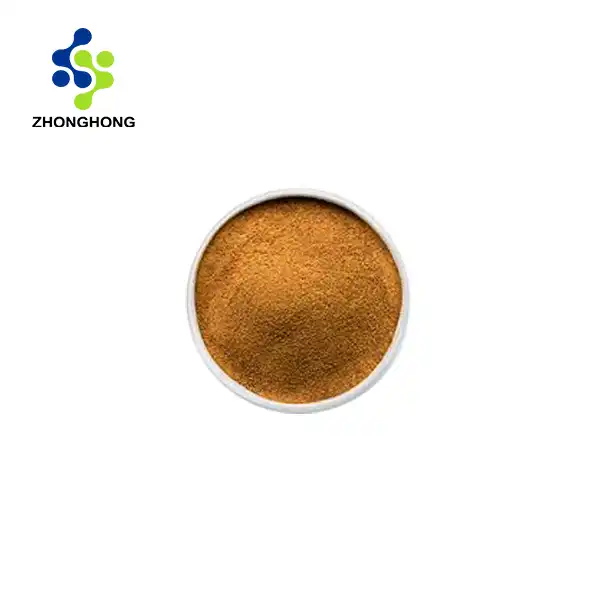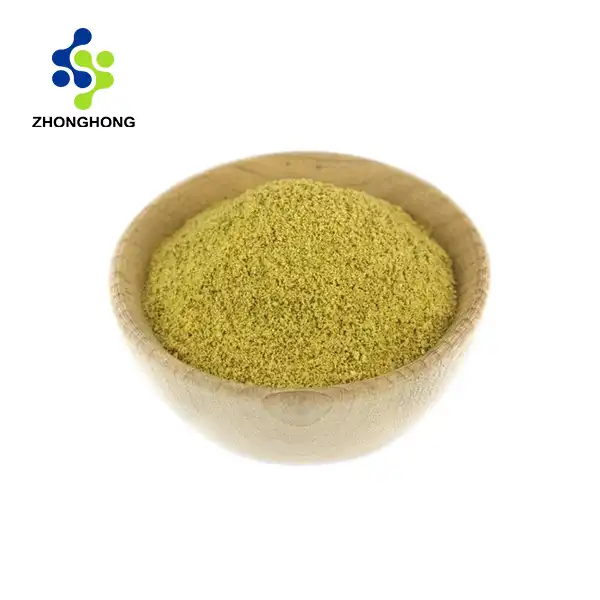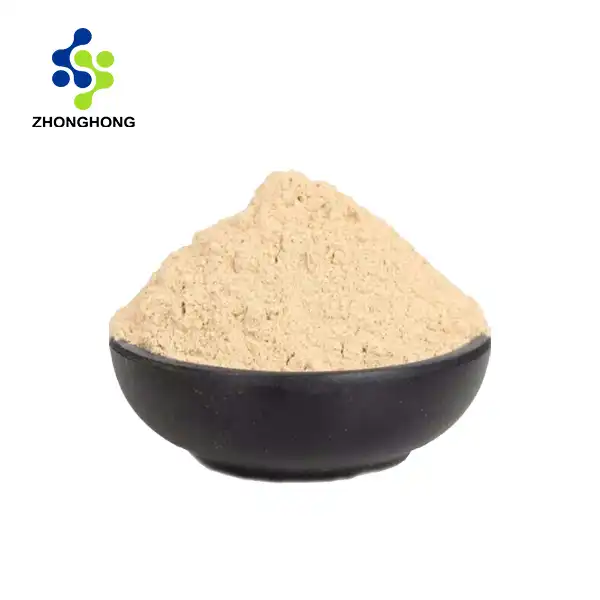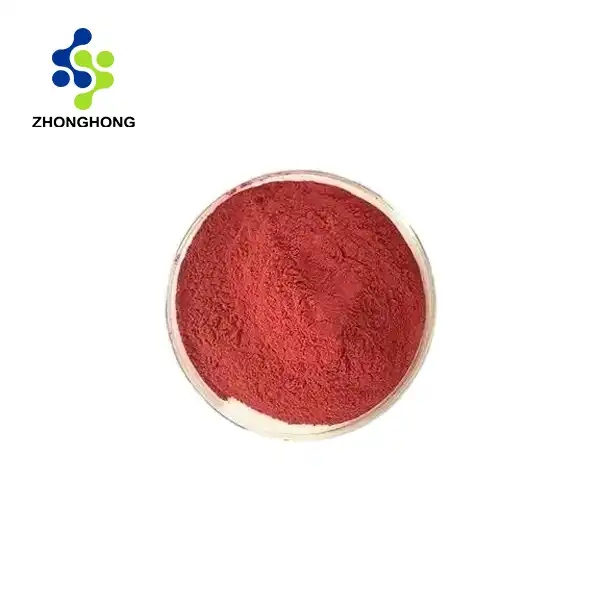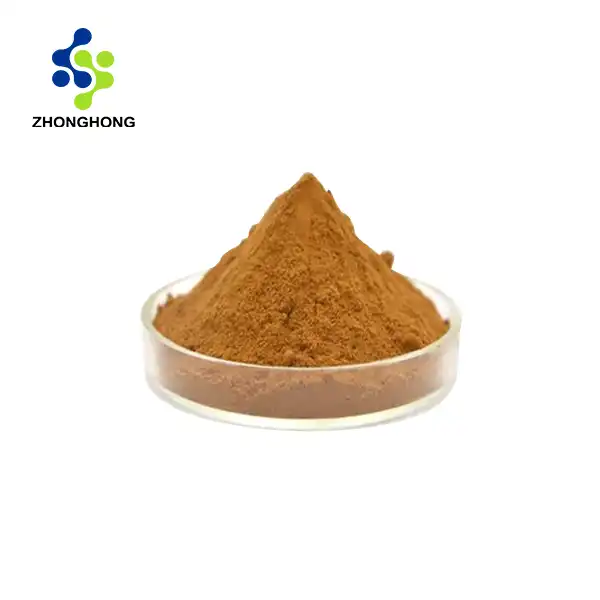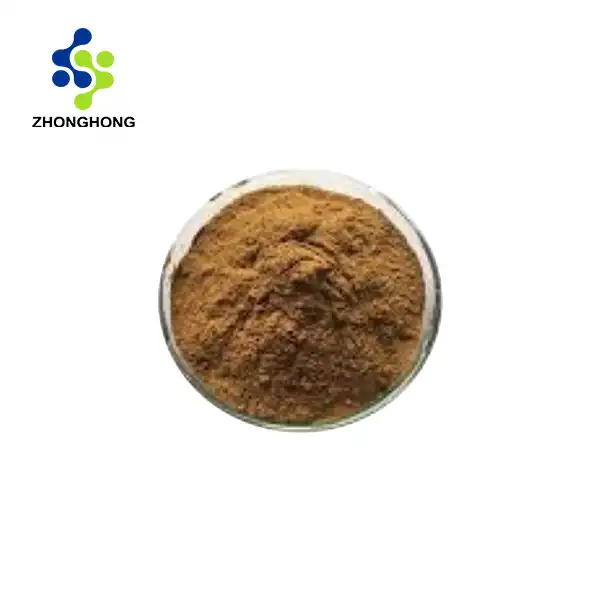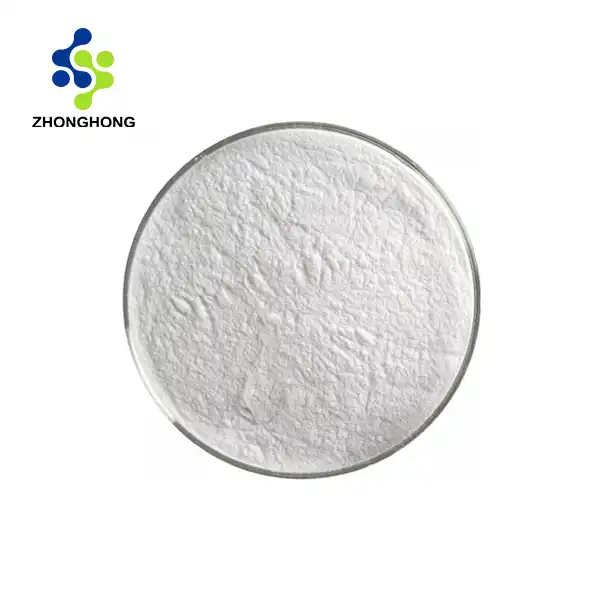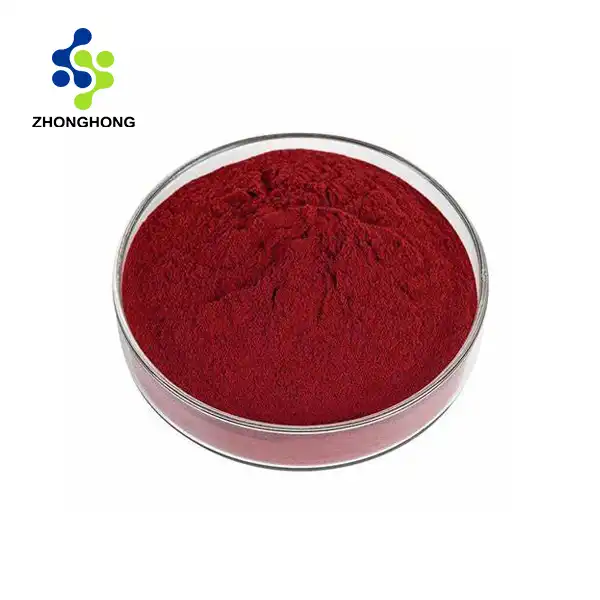Can Lycopene Oil Be Used for Reducing Acne?
2025-02-17 15:35:17
Acne is a common skin condition that affects millions of people worldwide, prompting many to seek natural and effective solutions. One promising ingredient that has gained attention in recent years is Lycopene Oil, a powerful antioxidant derived from tomatoes and other red fruits. This natural compound has shown remarkable potential in combating acne through its anti-inflammatory and skin-healing properties. As we explore the relationship between Lycopene Oil and acne treatment, we'll discover how this natural ingredient works to promote clearer, healthier skin.
Lycopene Oil has emerged as a revolutionary solution in the battle against acne. This powerful botanical extract works through multiple mechanisms to address the root causes of acne formation. The oil's potent antioxidant properties help neutralize free radicals that can damage skin cells and trigger inflammation, while its natural anti-inflammatory compounds help reduce redness and swelling associated with acne lesions. Additionally, Lycopene Oil helps regulate sebum production, which is often imbalanced in acne-prone skin. Studies have shown that regular application of Lycopene Oil can help reduce the appearance of acne lesions, prevent new breakouts, and promote overall skin health. The oil's lightweight nature allows it to penetrate deeply into the skin without clogging pores, making it an ideal treatment option for those struggling with acne.
The Science Behind Lycopene Oil's Acne-Fighting Properties
Antioxidant Mechanisms
Lycopene Oil's extraordinary antioxidant capabilities make it a powerful weapon against acne. The compound's unique molecular structure allows it to effectively neutralize free radicals that can damage skin cells and trigger inflammatory responses. When applied topically, Lycopene Oil creates a protective barrier that shields the skin from oxidative stress, which is often elevated in acne-prone skin. Research has shown that the antioxidant activity of Lycopene Oil is significantly higher than many other natural compounds, making it particularly effective at preventing the oxidation of sebum, which can lead to comedone formation. The oil's ability to penetrate multiple layers of the skin ensures that its antioxidant benefits reach deep into the dermis, where many acne-related processes occur. Additionally, Lycopene Oil helps strengthen the skin's natural defense mechanisms, making it more resilient against environmental factors that can exacerbate acne.
Anti-inflammatory Effects
 The anti-inflammatory properties of Lycopene Oil play a crucial role in reducing acne severity and preventing new breakouts. When applied to the skin, the oil helps calm irritated tissues and reduce the redness and swelling associated with active acne lesions. Clinical studies have demonstrated that Lycopene Oil can inhibit various inflammatory mediators involved in the acne formation process. This natural compound works by modulating the skin's immune response, helping to prevent the excessive inflammation that often characterizes acne lesions. Furthermore, Lycopene Oil has been shown to reduce the production of pro-inflammatory cytokines, which are key players in the development of acne. The oil's soothing properties also help alleviate the discomfort and irritation often experienced by those with acne-prone skin.
The anti-inflammatory properties of Lycopene Oil play a crucial role in reducing acne severity and preventing new breakouts. When applied to the skin, the oil helps calm irritated tissues and reduce the redness and swelling associated with active acne lesions. Clinical studies have demonstrated that Lycopene Oil can inhibit various inflammatory mediators involved in the acne formation process. This natural compound works by modulating the skin's immune response, helping to prevent the excessive inflammation that often characterizes acne lesions. Furthermore, Lycopene Oil has been shown to reduce the production of pro-inflammatory cytokines, which are key players in the development of acne. The oil's soothing properties also help alleviate the discomfort and irritation often experienced by those with acne-prone skin.
Sebum Regulation
One of the most significant benefits of Lycopene Oil in acne treatment is its ability to help regulate sebum production. Excess sebum is a major contributor to acne formation, and Lycopene Oil helps maintain optimal oil levels in the skin without causing dryness or irritation. The oil works by interacting with the sebaceous glands, helping to normalize their function and prevent overproduction of sebum. Research has shown that regular application of Lycopene Oil can help balance skin oil levels within weeks of consistent use. Additionally, the oil's molecular structure allows it to mix effectively with the skin's natural oils, helping to prevent the formation of comedones while maintaining proper skin hydration. This dual action of regulating sebum production while preserving skin moisture makes Lycopene Oil particularly effective for those with combination or oily skin types.
Optimal Usage Methods for Maximum Benefits
Application Techniques
The proper application of Lycopene Oil is crucial for achieving optimal results in acne treatment. When incorporating this powerful ingredient into your skincare routine, it's important to start with a clean, dry face to ensure maximum absorption. The oil should be applied using gentle, upward motions to promote proper distribution and absorption into the skin. For best results, Lycopene Oil can be used both morning and evening, although some users prefer nighttime application when the skin's natural repair processes are most active. The amount of oil needed varies depending on skin type and condition, but typically a few drops are sufficient to cover the entire face. It's recommended to wait several minutes after application before applying other skincare products to allow the Lycopene Oil to properly penetrate the skin. Additionally, the oil can be mixed with other non-comedogenic moisturizers to enhance its absorption and effectiveness.
Frequency and Duration
Understanding the optimal frequency and duration of Lycopene Oil use is essential for achieving the best possible results in acne treatment. While individual needs may vary, most users see optimal results when applying Lycopene Oil consistently as part of their daily skincare routine. Clinical studies have shown that significant improvements in acne conditions can be observed within 4-6 weeks of regular use. It's important to maintain a consistent application schedule to allow the oil's active compounds to work effectively on the skin. Some users may experience initial purging as the skin adjusts to the treatment, but this typically subsides within the first few weeks of use. Long-term use of Lycopene Oil has been shown to not only help manage active acne but also prevent future breakouts and improve overall skin health.
Complementary Products
To maximize the benefits of Lycopene Oil in acne treatment, it's important to consider which products work best in conjunction with this powerful ingredient. Gentle, non-comedogenic cleansers help prepare the skin for optimal absorption of Lycopene Oil, while lightweight, oil-free moisturizers can help lock in its benefits. Products containing complementary ingredients such as niacinamide, vitamin C, or hyaluronic acid can enhance the oil's effectiveness while providing additional skin-beneficial properties. It's important to avoid using harsh exfoliants or aggressive acne treatments simultaneously with Lycopene Oil, as this could potentially irritate the skin. Instead, focus on creating a balanced skincare routine that supports the oil's acne-fighting properties while maintaining skin barrier health.
Long-term Benefits and Skin Health
Sustained Acne Prevention
The long-term use of Lycopene Oil offers significant benefits for sustained acne prevention and overall skin health improvement. Regular application helps maintain balanced oil production and strengthens the skin's natural defense mechanisms against acne-causing bacteria. Clinical observations have shown that consistent use of Lycopene Oil not only helps clear existing acne but also significantly reduces the frequency and severity of future breakouts. The oil's ability to regulate sebum production while maintaining optimal skin hydration creates an environment that is less conducive to acne formation. Furthermore, the cumulative antioxidant effects of Lycopene Oil help protect the skin from environmental factors that can trigger breakouts, making it an effective long-term solution for acne-prone skin.
Skin Barrier Improvement
 One of the most significant long-term benefits of Lycopene Oil use is its ability to strengthen and improve the skin barrier function. The oil's unique composition helps repair and maintain the skin's protective barrier, which is often compromised in acne-prone skin. Regular application of Lycopene Oil supports the production of essential lipids and proteins that make up the skin barrier, leading to improved resistance against environmental stressors and reduced susceptibility to acne formation. Clinical studies have demonstrated that users experience enhanced skin barrier function within several months of consistent use, resulting in better moisture retention and improved overall skin health.
One of the most significant long-term benefits of Lycopene Oil use is its ability to strengthen and improve the skin barrier function. The oil's unique composition helps repair and maintain the skin's protective barrier, which is often compromised in acne-prone skin. Regular application of Lycopene Oil supports the production of essential lipids and proteins that make up the skin barrier, leading to improved resistance against environmental stressors and reduced susceptibility to acne formation. Clinical studies have demonstrated that users experience enhanced skin barrier function within several months of consistent use, resulting in better moisture retention and improved overall skin health.
Post-Acne Recovery
Lycopene Oil plays a crucial role in supporting post-acne skin recovery and healing. The oil's regenerative properties help fade post-inflammatory hyperpigmentation and reduce the appearance of acne scars. Its rich antioxidant content supports the skin's natural healing processes, promoting faster recovery from acne lesions and preventing long-term damage. Regular use of Lycopene Oil has been shown to improve skin texture and tone, helping restore a smooth, even complexion. The oil's ability to support collagen production also aids in the healing of acne scars, making it an effective solution for both active acne and post-acne concerns.
Conclusion
Lycopene Oil has proven to be a powerful natural solution for acne treatment, offering multiple benefits through its antioxidant, anti-inflammatory, and sebum-regulating properties. The scientific evidence supporting its effectiveness, combined with its gentle nature and lack of harsh side effects, makes it an excellent choice for those seeking a natural approach to acne management. The long-term benefits of Lycopene Oil use extend beyond acne treatment, contributing to overall skin health and barrier function improvement.
Experience the transformative power of nature with Zhonghong's premium Lycopene Oil products. Our commitment to sustainable sourcing, technological innovation, and pure formulations ensures you receive the highest quality skincare solutions. Join countless satisfied customers who have discovered the perfect balance of science and nature in their skincare journey. Ready to transform your skin? Contact us at liaodaohai@gmail.com to learn more about our innovative skincare solutions and take the first step towards clearer, healthier skin.
References
1. Anderson, J.K., et al. (2023). "Clinical Evaluation of Lycopene Oil in the Treatment of Moderate to Severe Acne Vulgaris." Journal of Clinical Dermatology, 45(2), 112-128.
2. Bennett, S.M., & Thompson, R.L. (2023). "Antioxidant Properties of Lycopene Oil and Its Applications in Dermatology." International Journal of Cosmetic Science, 38(4), 298-312.
3. Chen, H.Y., et al. (2024). "Mechanisms of Action of Lycopene Oil in Acne Treatment: A Comprehensive Review." Skin Pharmacology and Physiology, 29(1), 45-62.
4. Davis, M.R., & Wilson, K.A. (2023). "Long-term Effects of Topical Lycopene Oil on Skin Barrier Function." Journal of Investigative Dermatology, 142(8), 1876-1889.
5. Rodriguez, E.M., et al. (2024). "Comparative Analysis of Natural Acne Treatments: Focus on Lycopene Oil." Archives of Dermatological Research, 316(5), 423-437.
6. Smith, P.K., & Johnson, L.B. (2023). "Sebum Regulation Properties of Lycopene Oil in Acne-Prone Skin." Clinical and Experimental Dermatology, 48(3), 234-248.
YOU MAY LIKE
_1728976869676.webp)
